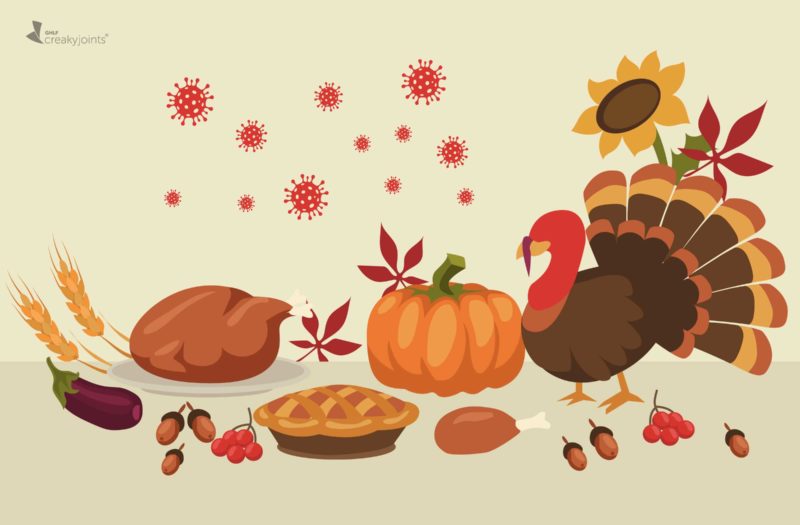Learn more about our FREE COVID-19 Patient Support Program for chronic illness patients and their loved ones.
“What am I going to do for the holidays?” Clients are asking me this with increasing urgency.
What plans could I make? What’s the best/safest/emotionally satisfying way to spend my time? What am I able to do?
There are no easy answers. The U.S. Centers for Disease Control and Prevention has given guidelines. (They recommend that people who are at increased risk for severe illness, such as older adults and those with certain medical conditions, avoid in-person gatherings with those not in their household).
I imagine (or hope) you’ve consulted your health care providers, who know your specific situation and what your risks are.
Whatever you decide is best for you and your loved ones, here is a little emotional TLC to adjust to this year being different
1. Explore new possibilities for celebration
One client gleefully told me that she and her husband were finding new recipes to try and imagining different ways to spend the holidays.
“We usually have to have exactly what the extended family has always had to eat and spend the day in a traditional way. I’m looking forward to doing something new,” she shared.
This is the time to do things differently and shake it up a bit. Try to view this year’s holiday season as a possibility rather than a loss.
Maybe you will also find a food you’ve always wanted to have, or you’ll decide you don’t want football games on TV in the background all day. Maybe you won’t cook at all — you’ll find a great takeout option and do less prep and clean up and more hanging around. If you normally spend Thanksgiving stuck in the kitchen all day, think about what you might do with that newfound time instead. Could you have a movie or board game marathon with your immediate family?
Let yourself play with possibilities.
2. Re-connect with your spiritual side
In whatever tradition you claim as your heritage, the holidays reflect a spiritual longing and meaning, whether it is gratitude, remembering the light, or finding hope.
Make space in your day or week to feel what that spiritual meaning can offer you in this radically different time. Let whatever offers you peace, hope, and joy come to life in some way.
Candles, music, time to be quiet and reflect, formal or informal prayer, poetry and an appreciation of beauty all contribute to our holiday magic. Reclaiming that for your life can make this new time more meaningful.
3. Make a decision and a plan
It can be tempting to keep all options open and not commit to a plan because so much is uncertain. It can also be a temptation not to make decisions because it feels too painful for things to be so different.
But for many of my clients, staying undecided keeps emotions churning, and there is a price to pay for that.
Be willing to make at least a provisional plan — one you can feel is yours. The more you are able to take charge of your situation, the less likely you are to feel victimized by present circumstance. Being in charge relieves stress and often anxiety.
You may be feeling guilty about asking family not to come over this year or declining your usual invitation to a loved one’s. Maybe you’re waiting to “see how things are” when it gets closer to the holidays. But if you know deep down that it’s safer for you to skip the holidays this year, just say so and move on. Here are more tips on how to decline Thanksgiving.
It will be a different holiday celebration this year, but you can make of it what will work for you.
Get Free Coronavirus Support for Chronic Illness Patients
Join the Global Healthy Living Foundation’s free COVID-19 Support Program for chronic illness patients and their families. We will be providing updated information, community support, and other resources tailored specifically to your health and safety. Join now.






